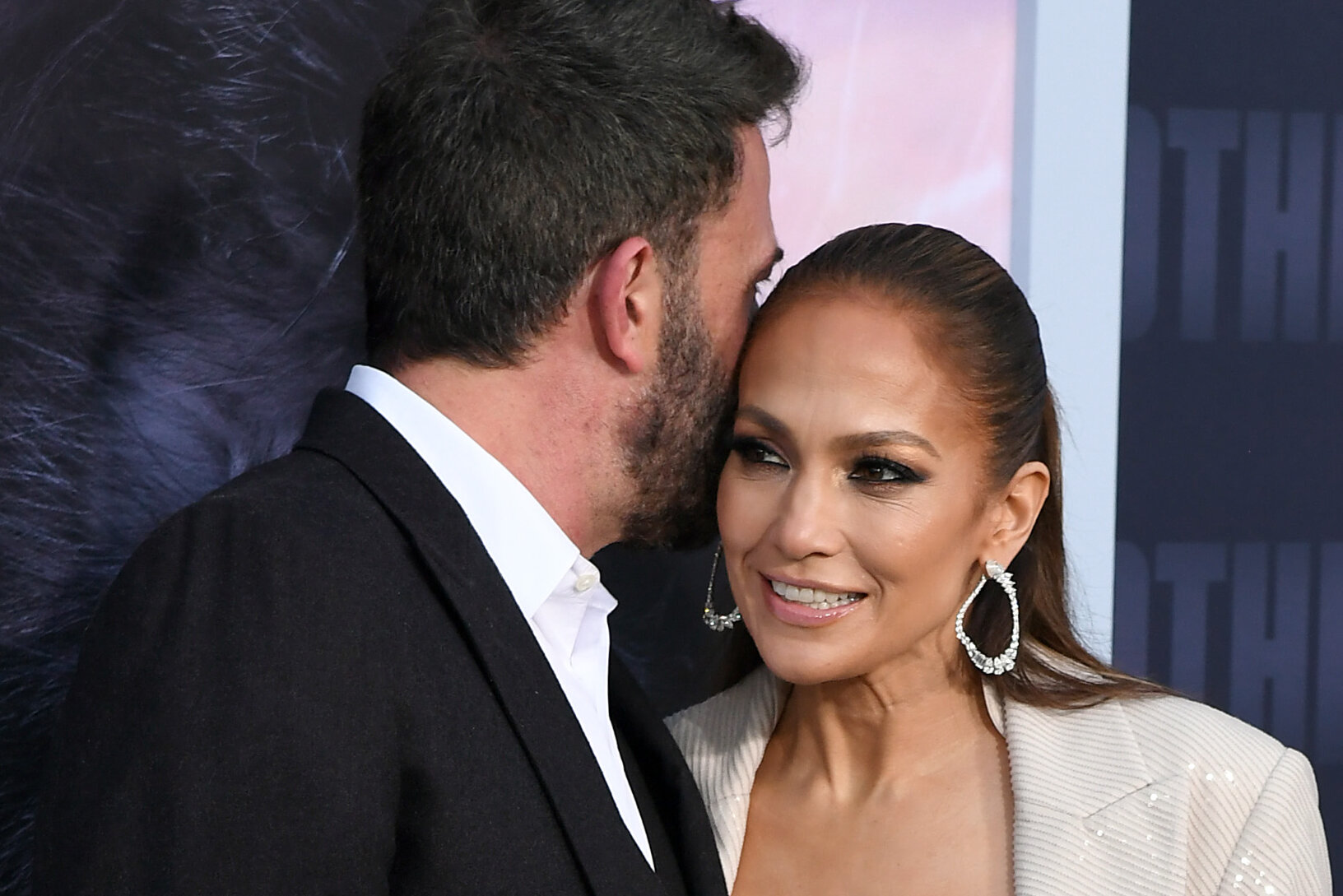Distinguish the nuances and understand your heart’s desires to truly fathom where your relationship stands.
Many of us have experienced that heady sensation of falling head over heels for someone, and we routinely find ourselves surrounded by those we hold dear and resonate with. Yet, have you ever taken a moment to ponder the distinction between loving someone and actually being in love? While they might sound like interchangeable sentiments, the emotional landscapes they encompass are rather distinct.
In the initial stages of a budding relationship, there’s an undeniable thrill. Your heart skips a beat each time your eyes meet theirs, and a mere thought of them sends a rush of emotions cascading through you. This is the magic of being ‘in love’. It’s a whirlwind of delicate emotions and fervent admiration; it’s intoxicating, leaving you utterly captivated. Conversely, to love someone is a journey. It’s about the steady cultivation of a profound emotional bond with your partner. It’s a commitment to weathering both the sunlit days and stormy nights, a testament to the resilience and depth of your bond.
Feeling a bit muddled about where your emotions lie? Debating whether you’re ‘in love’ with your other half or simply love them? Allow us to elucidate the fundamental differences between these two emotional states, aiding you in understanding the very essence of your bond. Dive in.
15 Differences Between Love and Being In Love
- Ownership vs. Partnership
Being in Love: When you’re ‘in love’, the emotions can be so intense that they blur boundaries, leading to feelings of possession. There’s a heightened desire to have that person solely for yourself, sometimes inadvertently overshadowing their individuality and not allowing them the breathing space they deserve.
Love: On the other hand, when you love someone, it stems from a deep respect for who they are as an individual. This love fosters a sense of partnership, where both individuals are encouraged to grow and maintain their independence. It’s a relationship rooted in mutual trust, ensuring that neither feels confined, but instead, feels like they’re journeying together as equals.
- Temporary vs. Forever
Being in Love: This is often the honeymoon phase of a relationship where everything feels like a fairytale. Yet, it’s also during this phase that one might lack the depth of understanding, patience, and resilience that mature relationships need. At the slightest sign of trouble, doubts may creep in and the idea of ending things might surface, highlighting the transient nature of this feeling.
Love: Loving someone transcends the honeymoon phase. It’s about sticking together, rain or shine. It signifies working through challenges, understanding one another, and consistently investing in the relationship. Making long-term plans, dreaming together, and viewing the future as a shared journey is a testament to the eternal nature of this love.
Quick Tip: While it’s natural for relationships to face obstacles, when genuine love is present, it acts as an anchor, allowing both partners to navigate stormy seas with unwavering commitment.
- Busy vs. Available
Being in Love: The euphoria of being ‘in love’ might sometimes create a false sense of connection, leading one to believe that mere feelings are enough to sustain a relationship, even when not physically present. This might result in not prioritising quality time together due to life’s other commitments.
Love: When you truly love someone, they become a priority. Despite the hustle and bustle of daily life, you find ways to weave them into your routine, ensuring that you always make time for them. It’s not about having time, but about making time, showing that they are an integral part of your life.
Remember, while being in love might give you a beautiful high, it’s the steady and enduring love that builds the foundation of a lasting relationship.
- Desire vs. Priority
Being in Love: This phase often revolves around physical passion and a powerful draw towards each other. The allure is intoxicating, and the chemistry is palpable. However, it’s primarily based on the surface, on the fervour of the moment, which can sometimes be fleeting.
Love: True love is a deep-seated commitment. It’s not just about physical attraction but about genuinely valuing each other’s essence. While the initial spark might dim, the connection and mutual respect grow stronger. It’s about prioritising each other’s growth, wellbeing, and happiness above all else. In this realm of love, the emphasis shifts from mere desire to genuinely valuing each other as top priorities in life.
- Changes vs. Acceptances
Being in Love: When engulfed in the heady feelings of being ‘in love’, it’s easy to focus on what you want and how you want your partner to be. Small quirks can seem major, and the drive to change them can be strong because you’re viewing the relationship through your own lens.
Love: Loving someone, however, means embracing them, flaws and all. It’s about understanding and acceptance. Sure, nobody’s perfect, and there will be traits that might bother you, but it’s the broader picture that counts. It’s about nurturing, encouraging growth, and supporting one another’s journey towards becoming better individuals. A love built on mutual respect acknowledges that both partners will work on their imperfections, not out of compulsion but out of a genuine desire for personal growth and a healthy relationship.
- How They Make You Feel vs. How You Make Them Feel
Being in Love: At this phase, it’s predominantly about the emotions you experience. The butterflies, the excitement, the euphoria – it’s all about how they make you feel. This sensation can be intoxicating, but it’s largely introspective.
Love: When you truly love someone, the spotlight shifts. It’s less about your feelings and more about theirs. It’s about selflessly doing things, big or small, that bring joy to their day. The yardstick becomes the lengths you’re willing to go to, ensuring their happiness. It’s a partnership where mutual happiness reigns supreme, and you often find joy in their joy.
- Attention vs. Security
Being in Love: The initial stages of a relationship can feel like a roller-coaster, with soaring highs and sometimes unsettling lows. Amidst this whirlwind, there’s a yearning for affirmation, a desire for undivided attention, often stemming from a place of uncertainty.
Love: As the relationship matures and genuine love takes root, it evolves into a sanctuary of trust and security. It’s no longer about seeking validation or attention, but basking in the assured warmth of mutual commitment. It’s a serene space where both partners feel grounded, knowing they’ve got each other’s backs.
- Choice vs. Passion
Being in Love: It often starts as a conscious choice. We’re drawn to someone because of certain attributes – their charm, appearance, wit, or other captivating qualities. During this phase, passion burns brightly, but it can also be volatile. Once the allure of these qualities fades, or when imperfections emerge, there’s a risk of that passion waning.
Love: When you genuinely love someone, the decision transcends superficial qualities. It becomes less about choice and more about deep-seated commitment. It’s a connection where even as time wears on, and imperfections become more apparent, the passion is maintained, not just through physical attraction, but through mutual respect, understanding, and the time invested in nurturing the bond.
- Agreements vs. Disagreements
Being in Love: During the early stages, disagreements might be rare as both partners might still be in the process of unveiling their true selves, and there’s a natural inclination to present the best versions of oneself.
Love: As the relationship progresses and evolves into a deep love, disagreements will naturally arise. However, it’s not about the disagreement itself but how it’s approached. When you love someone, there’s an innate desire to understand their perspective, communicate openly, and work collaboratively towards a solution. It becomes a partnership where both individuals feel safe to express their true feelings, knowing they’ll be heard and valued. Conversely, if there’s hesitation in sharing genuine thoughts or if there’s a feeling of not being respected, it may indicate that the foundation of trust and mutual respect needs strengthening.
- Rekindling Love
Being in Love: This phase can be intense, but it can also be fickle. There’s a tendency to feel that it’s your partner’s responsibility to keep the flame alive. If the relationship faces external pressures, there might be an expectation that the other person should always be the one making amends or reigniting the spark. The relationship might feel more like a contest, with each one waiting for the other to make the first move.
Love: When there’s genuine love, efforts to rekindle the romance come naturally. It’s not about keeping score or waiting for the other person to make a move. Both partners understand the importance of nurturing their bond, especially when life’s challenges come in the way. Efforts become mutual; they are acts of love, not obligations.
11.Being Together vs. Going Your Way
Being in Love: In this phase, individualism might dominate. The relationship can sometimes feel like two parallel tracks, seldom intersecting. There’s a stronger focus on personal pursuits, often at the cost of joint experiences. You might indulge in activities you love without much thought of integrating your partner into them.
Love: True love cherishes togetherness. It’s about creating shared memories and experiences. While personal space and individual pursuits remain essential, there’s a conscious effort to incorporate activities that both partners can enjoy together. It becomes less about “me” and more about “us.” Even when life gets busy, both partners find ways to reconnect, whether it’s through shared hobbies, mutual interests, or simply spending quality time together.
In essence, while being in love often celebrates the individual, true love celebrates the union – the beautiful confluence of two lives intertwining and growing together.
- Steady Feelings vs. On-And-Off Thoughts
Being in Love: This phase can be tumultuous, oscillating between the euphoria of loving moments and the despair of conflicts. It’s driven by infatuation and raw emotion. You might find your feelings swinging wildly depending on the situation. A disagreement might suddenly make you question everything, and emotions can be more reactive than reasoned.
Love: Deep-seated love operates on a consistent wavelength. While disagreements and conflicts are inevitable, the underlying sentiment remains steadfast. Love gives you the perspective to understand that a bad day or a difference of opinion doesn’t define the entirety of the relationship. With love, even during disputes, there’s a prevailing sense of respect and a genuine desire to resolve differences, rather than just proving a point.
- Ups and Downs
Being in Love: The initial stages of a relationship, fuelled by intense passion, can be both exhilarating and volatile. Every little argument might feel like the end of the world. The future of the relationship could frequently feel uncertain, especially during disagreements. Without a strong foundation, there’s a higher susceptibility to break at the slightest strain.
Love: It understands that a relationship isn’t always sunshine; there will be storms. But it’s the commitment to weather those storms together that defines true love. This love is resilient, viewing challenges as opportunities for growth rather than threats of separation. It’s about building a life together, with the knowledge that while there will be good days and bad, the bond remains unwavering. It’s not about avoiding problems, but facing them head-on, hand in hand.
Ultimately, while being in love can be a thrilling ride filled with highs and lows, genuine love is a journey, steady and enduring, that grows richer with every shared experience.
- Comparison Vs. Acceptance
Being in Love: At the height of infatuation and the early stages of a relationship, you might find your mind wandering to ‘what ifs’ and making comparisons. It could be to past relationships, idealised versions of a partner, or even strangers who exhibit traits you find attractive. These comparisons, often superficial, can lead to feelings of doubt and insecurity about the relationship.
Love: Genuine love cherishes the individuality of the person, embracing their strengths and weaknesses alike. It’s not blind to their flaws, but it accepts and understands them as part of the whole package. There’s no measuring up or tallying points against some imaginary standard. When you truly love someone, you appreciate their uniqueness, seeing their incomparable value and resisting the urge to measure them against anyone else.
- Connection
Being in Love: This stage often revolves around the excitement and thrill of discovering someone new. The attraction is undeniable, but the understanding might be surface level. While there might be shared laughter and good moments, the connection might not transcend deeper emotional or intellectual levels. Sometimes, it’s more about how the person makes you feel rather than truly knowing and understanding each other.
Love: As love matures, the connection deepens. It’s about knowing someone at their core — their dreams, fears, ambitions, and vulnerabilities. This connection goes beyond shared interests or physical attraction; it’s about mutual respect, understanding, and an alignment of values. When you truly love someone, it feels as if your souls resonate on the same frequency. Even in silence, there’s a depth of understanding, and the bond feels unbreakable.
In sum, while being in love might offer a tantalising glimpse into the potential of a relationship, true love is the fulfilment of that potential — it’s where two individuals, with all their imperfections, come together to create something truly profound and lasting.
Summary
Loving someone and being in love with someone are distinct emotions that can influence our behaviours, desires, and feelings towards our partner in unique ways. Being in love often denotes a passionate but sometimes fleeting phase, often filled with infatuation and sometimes possessiveness. In contrast, genuinely loving someone means deeply caring for them, accepting them with all their imperfections, and valuing the partnership above everything.
FAQs
Can you love someone without being in love?
Yes, often seen in platonic friendships or family relationships. It involves deep care without romantic attraction.
How do you know you are not in love?
Signs may include a lack of desire to spend time with them, decreased communication, or not feeling a romantic pull.
What does it mean when someone loves you but is not in love with you?
It suggests they deeply care for you and value your relationship, but might not see a romantic future together.
Key Takeaways
Understand that love and being in love are different emotional stages, each with its own depth, intensity, and longevity.
Being in love may come with a sense of ownership, while love promotes partnership and equality.
Love is often a long-lasting emotion with deep roots, while being in love can be a passionate, yet sometimes short-lived phase.
True love brings a sense of security, consistency, and commitment, whereas being in love might not guarantee these feelings.






